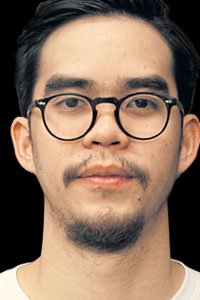The success of Ratchanok "May" Intanon, Thai badminton star who recently won the Singapore Open and became world No.1, is an exception, obviously. The 21-year-old is slightly built, but according to a recent comment by Prime Minister Prayut Chan-o-cha, success in sports has nothing to do with size but is due to the lack of conflict in the athlete's country.
He said that no matter how much we (Thai athletes) eat, we are still "small". "Those able athletes in our neighbouring countries, they are now bigger than us," Gen Prayut added. "[It's because] they don't think about all the nonsense, the brains are clear. With no thoughts on conflict, you grow faster."
Now, that's enlightening. The myth about our lack of success in sports has always been about size but never before have we realised that it's down to, neither genetics nor physical training, but the country's political stability. This, of course, must also be attributed to the Thai national football team's success in the 2018 World Cup qualifying round. With the exception of Chanathip "Messi Jay" Songkrasin, the strength and stature of other players in the War Elephants team is very likely due to the "peacefulness" in Thailand for the past decade or so.
In Ratchanok's case, Gen Prayut said that she could be used as a symbol to encourage Thais to love badminton. Gen Prayut was right but perhaps missed a much more significant point; rather than the success stories of Ratchanok and the national football team, it's simply the access to facilities for playing these sports that can actually help people fall in love with the game. Rather than just using icons to promote a love for sports, providing the actual grounds for the games will prove a far more efficient means for sustainable development of sports.
Bangkok is a prime example in terms of accessibility to sports. Once we are through school and university, sport is, in most cases, not free again, and it's not supposed to be that way.
Football and badminton, being among the most popular sports in Thailand, are good examples. Free access to football fields are the makeshift ones under highways where, first of all, it's cement rather than grass, and second, it's commonly understood to be limited to those in the area, people in the same gang, though technically being a "public space".
The only chance to play football on an actual grass field means you have to pay around 200 baht or more per person to rent the field for a game. Roughly the same amount applies to renting badminton courts. The only free game is on a windy soi with an imaginary net.
Come the Olympic Games for Ratchanok in August or the next match for the national football team, we can expect the state and private sector to contribute millions of baht as rewards for boosting the athletes' morale. Such has long been a tradition whenever Thai national teams enter the international area, and even though it's commendable and what these people deserve, it's hardly something that helps with the sustainable development of sports in the country.
The case in point here is about class and equality in our society and perhaps that's why we will never see change under the current government. In a civilised country, it is not too far-fetched to hope that there should be enough free sports facilities for all, regardless of the people's financial status. In Bangkok, all 50 districts should each have free sports centres, easily accessible for people.
At the international level, sport is all about competition but what Gen Prayut and the Ministry of Tourism and Sports must see is that for ordinary people sports is more about being healthy and building a sense of community, and most importantly, equality in society.
Kaona Pongpipat is a writer of the Life section of the Bangkok Post.
